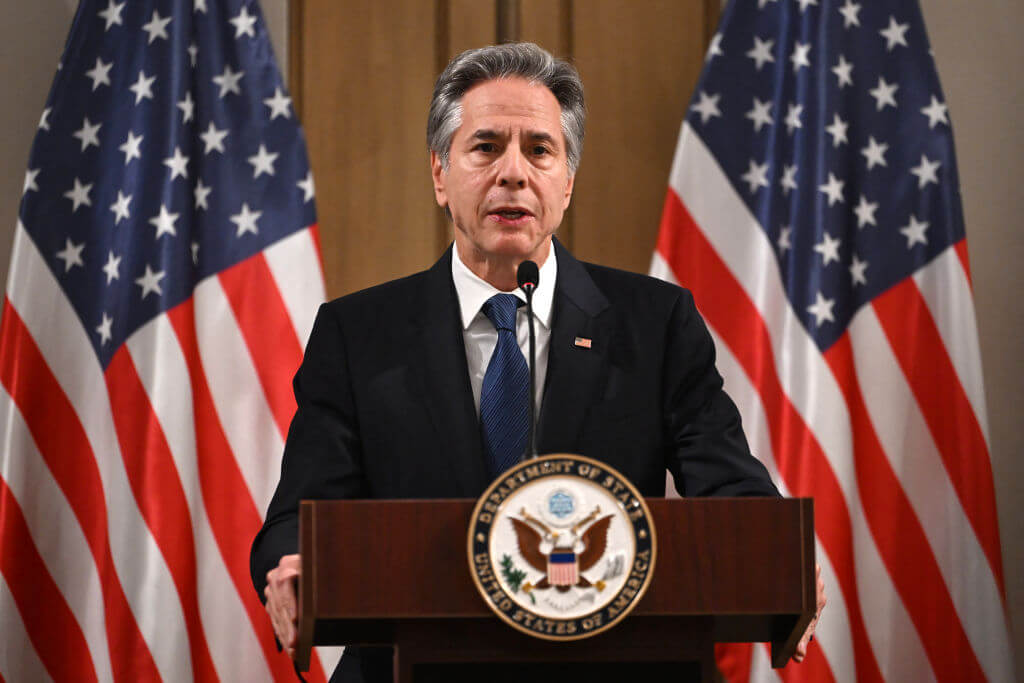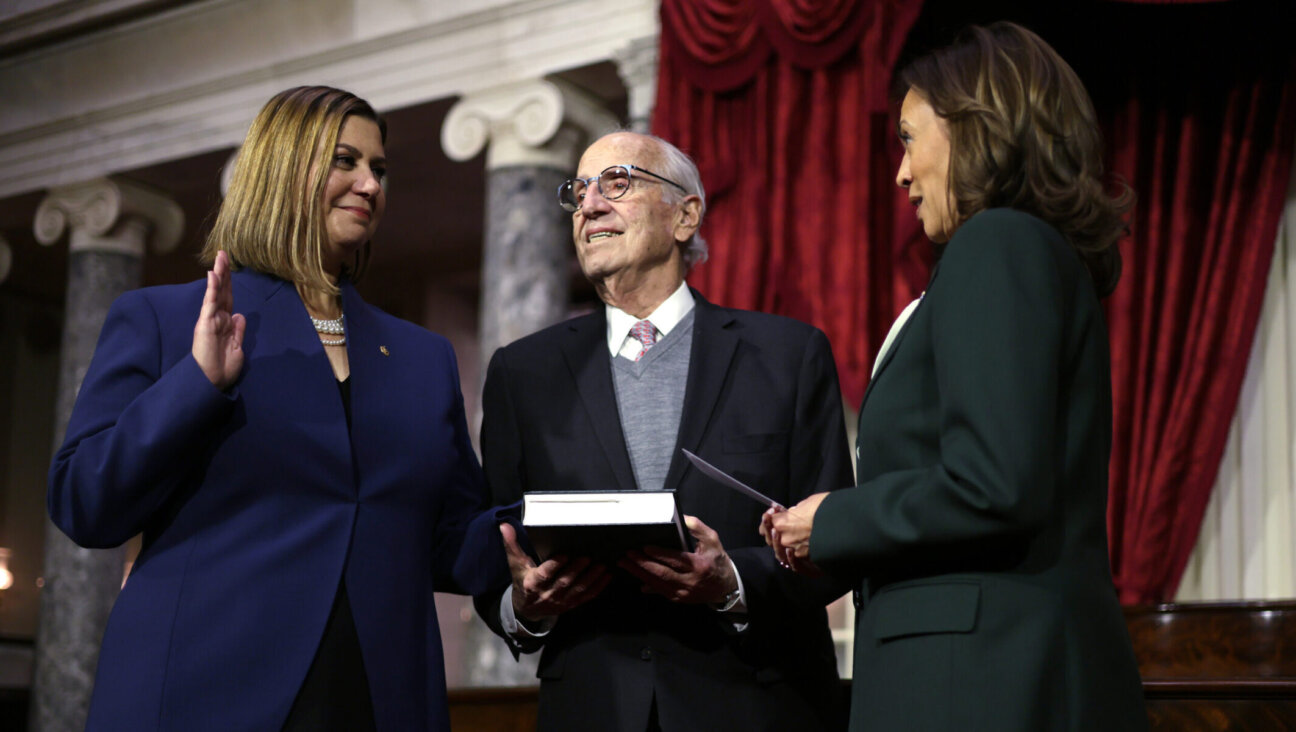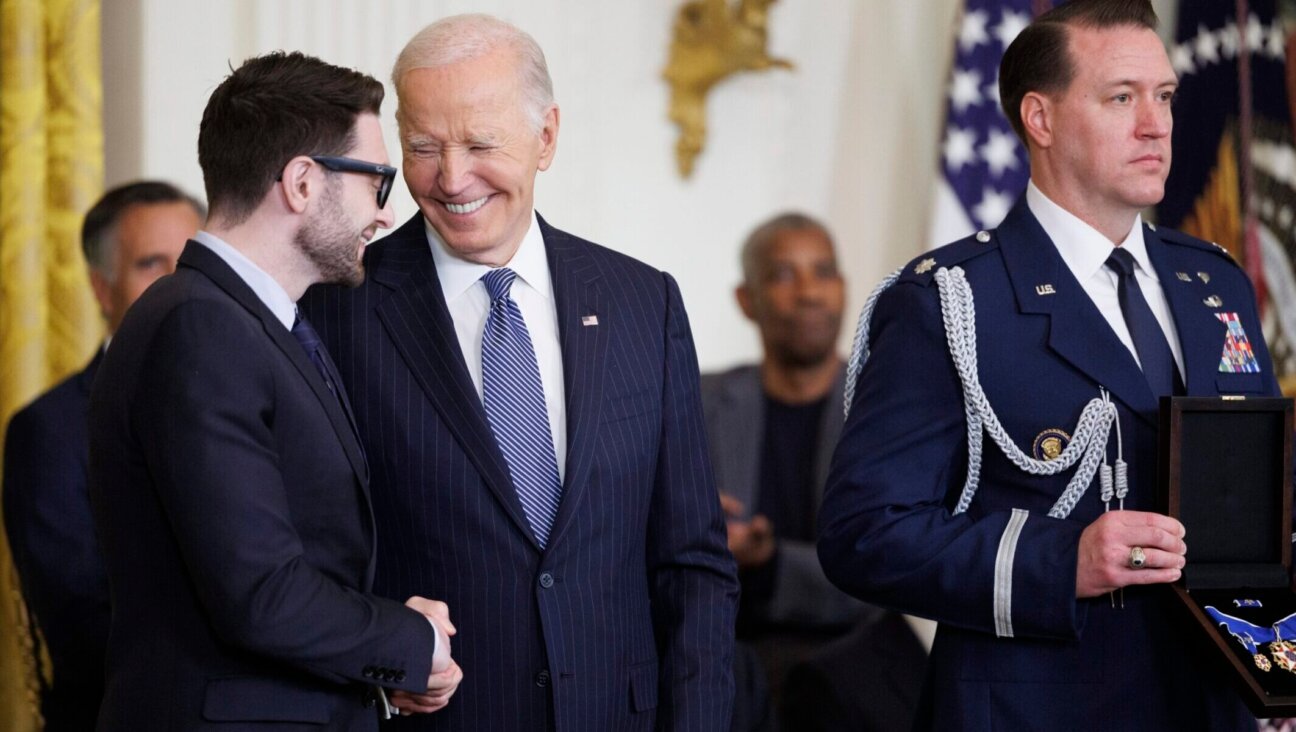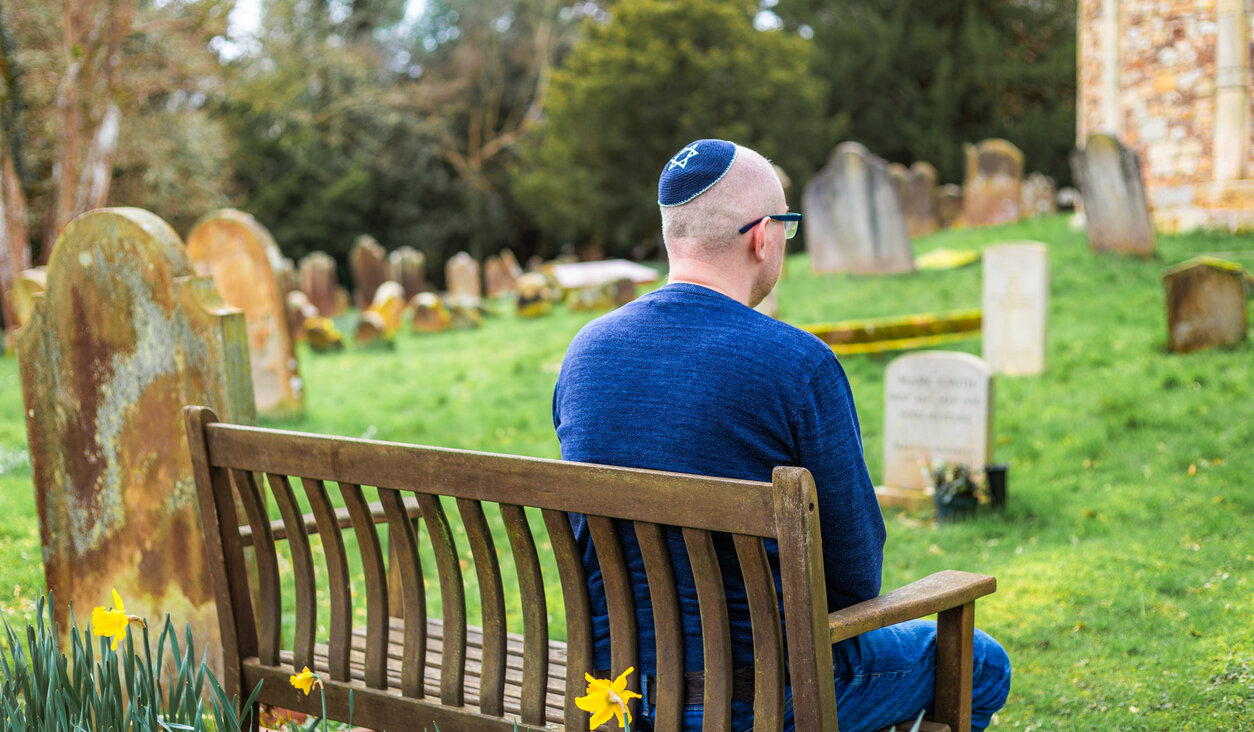Did Yeshiva University mislead New York state to obtain $230 million?
Three lawmakers accuse the school of ‘discriminatory behavior’ in letter challenging their receipt of the public funding
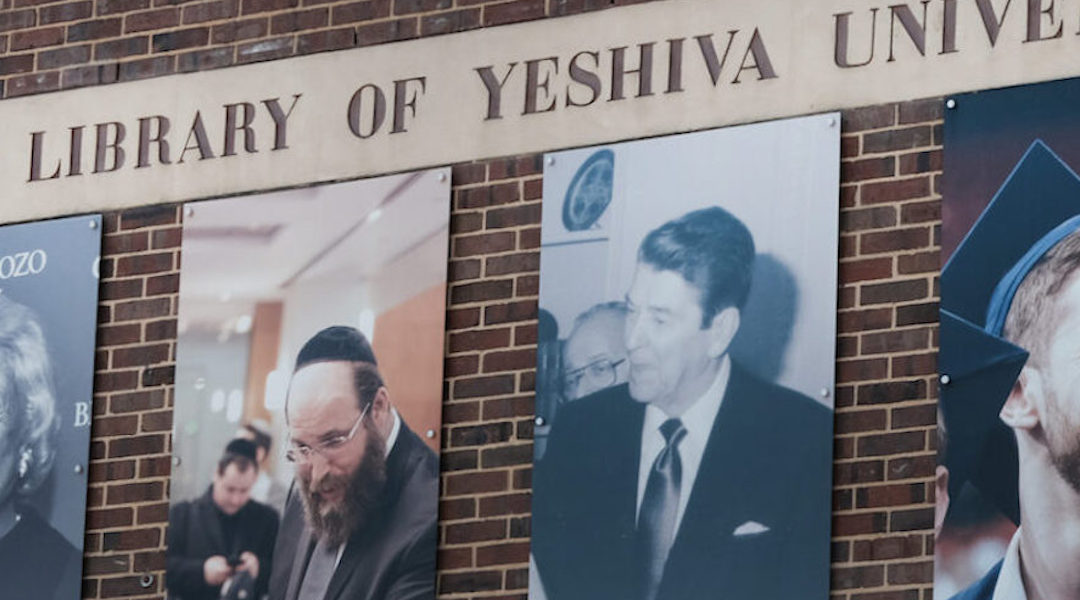
Signage on the campus of Yeshiva University in Washington Heights. Photo by Spencer Platt/Getty Images
A group of New York state lawmakers has questioned whether Yeshiva University misrepresented itself as a secular institution to obtain about $230 million in public funding, raising an issue that is also central to the Orthodox Jewish university’s court battle against a student LGBTQ group.
A letter from Sens. Brad Hoylman, Liz Krueger and Toby Ann Stavisky — respective chairs of the state senate’s Judiciary, Finance and Higher Education committees — demands YU provide a full accounting of how it spent grants for campus renovations and debt restructuring received in 2009 and 2011.
Accepting the grants, which came from the Dormitory Authority of the state of New York, a public finance and construction agency that works with educational institutions, the school agreed it would not spend the money on “sectarian religious instruction or as a place of religious worship,” The New York Times reported Wednesday.
In an active court case involving the YU Pride Alliance — an LGBTQ student group that the Modern Orthodox university has denied official recognition — YU has stressed its status as a religious institution, and argued that as such it has the right to block the group. YU is chartered, however, as an educational corporation. A New York judge ruled last year that it must comply with anti-discrimination statutes and recognize the student group. The university has appealed the decision.
“Y.U.’s discriminatory behavior is wholly inconsistent with the purposes for which state funding is provided, namely, to promote the fullest possible participation by all students in the state’s educational opportunities,” the senators wrote in the letter, according to the Times.
In a statement to the Times, YU spokesperson Hanan Eisenman said the school would “continue to defend the right of its students to be treated by the state on equal footing with students at every other university.
Eisenman added, “They choose for themselves how best to live those values, but the First Amendment guarantees Yeshiva the right to maintain a campus environment consistent with its religious beliefs.”
Correction: An earlier version of this article misspelled the names of Sen. Toby Ann Stavisky and, in one place, Yeshiva University spokesperson Hanan Eisenman.
A message from our Publisher & CEO Rachel Fishman Feddersen

I hope you appreciated this article. Before you go, I’d like to ask you to please support the Forward’s award-winning, nonprofit journalism so that we can be prepared for whatever news 2025 brings.
At a time when other newsrooms are closing or cutting back, the Forward has removed its paywall and invested additional resources to report on the ground from Israel and around the U.S. on the impact of the war, rising antisemitism and polarized discourse.
Readers like you make it all possible. Support our work by becoming a Forward Member and connect with our journalism and your community.
— Rachel Fishman Feddersen, Publisher and CEO








